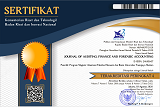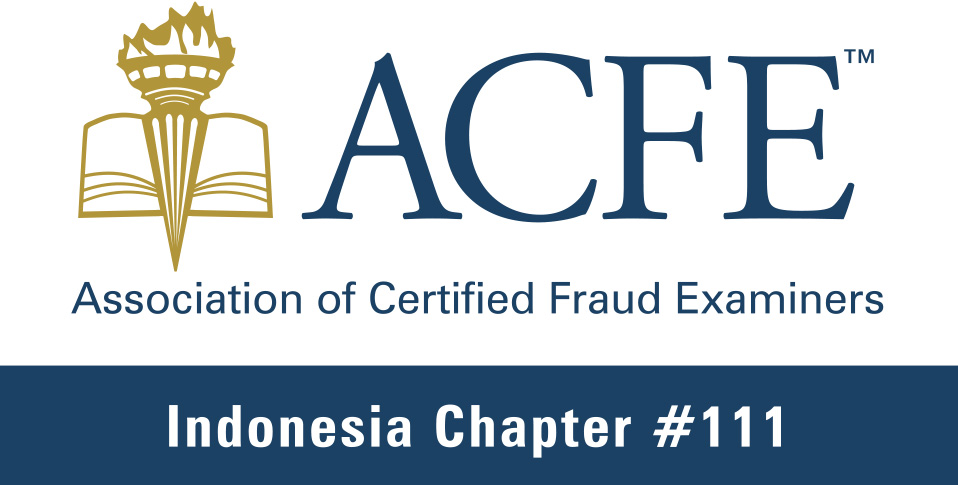Misinterpretation of "Compliance" in Village Planning and Budgeting
Abstract
This study aims to explore the erroneous interpretation of compliance culture in planning and budgeting practices within the Madurese cultural frame. This study uses a qualitative method with an ethnographic approach. They are collecting data through interviews, observations, and documentation studies. The researcher's findings are that obedience to the leader is a tradition of the ancestral Madurese people, which is contained in the sayings Bhupa', bhabu, ghuru, and rato—blind obedience or loyalty without seeing right and wrong leads to deviant behavior. The philosophy of the Madurese tradition and Islamic teachings teach obedience or noro 'bunte' to parental leaders only in the context of goodness. If the leader commits a wrong action, then a subordinate is obliged to remind him
Keywords
Full Text:
PDFReferences
Ajibolade, S. O., & Oboh, C. S. (2017). A critical examination of government budgeting and public funds management in Nigeria. International Journal of Public Leadership, 13(4), 218–242. https://doi.org/10.1108/ijpl-11-2016-0045
Al-Amri, L., & Haramain, M. (2017). Akulturasi Islam Dalam Budaya Lokal. Kuriositas : Media Komunikasi Sosial Dan Keagamaan, 10(2), 87–100. https://doi.org/10.35905/kur.v10i2.594
Alwindria, Y., Taufik, T., & Azlina, N. (2020). Analisis Transparansi Partisipasi Dan Akuntanbilitas Pengelolaan Dana Desa (Studi Kasus Pada Desa Sako Kecamatan Pangean Kabupaten Kuantan Singingi Provinsi Riau Tahun Anggaran 2018). Indonesian Journal of Accounting and Governance, 3(2), 259–282.
Andoh, C., Quaye, D., & Akomea-Frimpong, I. (2018). Impact of fraud on Ghanaian SMEs and coping mechanisms. Journal of Financial Crime, 25(2), 400–418. https://doi.org/10.1108/JFC-05-2017-0050
Anggono, A., & Pradinata, B. (2018). Management of village fund from foucauldian perspective: a case study in a village in madura. InFestasi, 16(37), 1–15.
Antlöv, H. (2003). Village government and rural development in Indonesia: The new democratic framework. Bulletin of Indonesian Economic Studies, 39(2), 193–214. https://doi.org/10.1080/00074910302013
Budiarto, D. S., & Isnaeni, R. (2022). The Role of Internal Control System and Spirituality on Fraud Prevention in Village Fund Management. Journal of Auditing, Finance, and Forensic Accounting, 10(1), 45–60. https://doi.org/10.21107/jaffa.v10i1.13943
Cahyono, H., Aziz, N. L. L., Nurhasim, M., Rahman, A. R., & Zuhro, R. Si. (2020). Pengelolaan Dana Desa Studi dari Sisi Demokratis dan Kapasitas Pemerintahan Desa. In Proposal Simlitamas. https://www.kemenkeu.go.id/media/6749/buku-pintar-dana-desa.pdf
Dachliyati, Musyarofah, S., & Tarjo. (2016). Mengungkap Fenomena Fraud Atas Pengelolaan Dana Desa. In Karya Ilmiah-Tesis Universita Trunojoyo Madura. Universitas Trunojoyo Madura.
Dewanti, E. D. W., Sudarno, & Kurrohman, T. (2016). Analisis Perencanaan Pengelolaan Keuangan Desa Di Desa Boreng (Studi Kasus Pada Desa Boreng Kecamatan Lumajang Kabupaten Lumajang). Artikel Ilmiah, 1–6.
Djasuli, M. (2021). Internal Control Perspective Based on Islamic Worldview. Journal of Auditing, Finance, and Forensic Accounting, 9(2), 24–32. https://doi.org/10.21107/jaffa.v9i2.11992
Fathur Rahman. (2011). Korupsi Di Tingkat Desa. Governance, 2(1), 13–24.
Fauzanto, A. (2020). Pertanggungjawaban Keuangan Desa Berdasarkan Prinsip. Widya Yuridika: Jurnal Hukum, 3(1), 43–52.
Habib Shulton Asnawi, & Eka Prasetiawati. (2018). Pribumisasi Islam Nusantara dan Relevansinya dengan Nilai-Nilai Kearifan Lokal di Indonesia. Jurnal Fikri: Jurnal Kajian Agama, Sosial Dan Buday, 3(1), 1–27.
Hidayaturrahman, M. (2018). Integration Of Islam And Local Culture: Tandhe’ In Madura. MIQOT: Jurnal Ilmu-Ilmu Keislaman, 42(1), 189. https://doi.org/10.30821/miqot.v42i1.477
Jatmiko, B., Laras, T., & Rohmawati, A. (2020). Budgetary participation, organizational commitment, and performance of local government apparatuses. Journal of Asian Finance, Economics and Business, 7(7), 379–390. https://doi.org/10.13106/jafeb.2020.vol7.no7.379
Jayeng, R. . (2011). Mencegah Daerah Bangkrut, Harian Kontan.
Kamayanti, A. (2016). Metodologi Penelitian Kualitatif Akuntansi. Yayasan Rumah Peneleh.
Khusaini, M. (2014). Local government planning and budgeting process: A case of districts and cities in Indonesia. International Journal of Economic Policy in Emerging Economies, 7(2), 141–156. https://doi.org/10.1504/IJEPEE.2014.063190
Latuconsina, Y. M., & Soleman, K. (2019). Identifikasi Nilai-nilai Kearifan Lokal Pencegah Tindakan Fraud dalam Pengelolaan Keuangan Desa di Kecamatan Leihitu. Jurnal Maneksi, 8(2), 235–241. http://www.ejournal-polnam.ac.id/index.php/JurnalManeksi/article/viewFile/395/252
Lestari, E. B., Tarjo, -, & Prasteyono, -. (2017). the Factors Affecting Tendency of Fraud in Government Sector. Journal of Auditing, Finance, and Forensic Accounting, 5(2), 67. https://doi.org/10.21107/jaffa.v5i2.3408
Lumbantoruan, D. L., & Mulyani, S. (2019). Planning and Budgeting: The Study of Village Financing Process In Balige Subdistrict. Journal of Accounting Auditing …, 2(2), 46–53.
Luthfi, K. M. (2016). Islam Nusantara: Relasi Islam dan Budaya Lokal. SHAHIH : Journal of Islamicate Multidisciplinary, 1(1), 1. https://doi.org/10.22515/shahih.v1i1.53
Martinez-Vazquez, J., & Vaillancourt, F. (2011). Decentralization in developing countries: Global perspectives on the obstacles to fiscal devolution. Decentralization in Developing Countries: Global Perspectives on the Obstacles to Fiscal Devolution, 3, 320–322.
Nasrullah, N. (2019). Islam Nusantara: Analisis Relasi Islam dan Kearifan Lokal Budaya Madura. Al-Irfan : Journal of Arabic Literature and Islamic Studies, 2(2), 274–297. http://ejournal.kopertais4.or.id/madura/index.php/alirfani/article/view/3589
Nasution, K., Uup, P., Pemikiran, S., & Abduh, M. (2019). Dasar Wajib Mematuhi Undang-Undang Proses Pembuatan UU dalam Konstitusi Indonesia. ADHKI: Journal of Islamic Family Law, 1, 1–16.
Omar, M., Nawawi, A., & Puteh Salin, A. S. A. (2016). The causes, impact and prevention of employee fraud. Journal of Financial Crime, 23(4), 1012–1027. https://doi.org/10.1108/jfc-04-2015-0020
Paisun, P. (2010). Dinamika Islam Kultural: Studi Atas Dialektika Islam Dan Budaya Lokal Madura. El-Harakah (Terakreditasi), 12(2), 154–168. https://doi.org/10.18860/el.v0i0.450
Putra, M. A., & Rahayu, N. T. (2019). Analisis Fraud Diamond Theory Dalam Pengelolaan Dana Desa di Kecamatan Guntur Kabupaten Demak. Posiding Seminar Nasional Unimus, 2, 240–248.
Rifai, M. A. (2007). Manusia Madura : Pembawaan, Perilaku, Etos Kerja, Penampilan, dan Pandangan Hidupnya Seperti Dicitrakan Peribahasannya (S. AZ & I. MH (eds.)). Pilar Media.
Rohimanto, D. D., Setiawan, A. R., & Zuhdi, R. (2015). Fenomena Pengelolaan Keuangan Desa. Universitas Trunojoyo Madura.
Rohmah, N. F., Zuhdi, R., & Setiawan, A. (2016). Pengelolaan Dana Desa Di Tahun Pertama: Kentalnya Mindset Kepala Desa Sebagai Si “Raja Kecil.” Simposium Nasional Akuntansi, 34.
Setiawan, A. R. (2015). “Oreng Jujur Bakal Pojur, Oreng Pojur Mate Ngonjur”: Tafsir Budaya(Wan) Madura Atas Multitafsir “Sisi Gelap” Pengelolaan Keuangan Daerah (Studi Bid’ah Hermeneutics). Jurnal Simposium Nasional Akuntansi, 2013. http://library1.nida.ac.th/termpaper6/sd/2554/19755.pdf
Setiawan, A. R. (2016). Al-Halalu Bayn Wal Haroomu Bayn: Tafsir Agama(Wan) atas Multitafsir “Sisi Gelap” Pengelolaan Keuangan Daerah. Jurnal Akuntansi Multiparadigma, 7(1). https://doi.org/10.18202/jamal.2016.04.7002
Sopanah. (2012). Ceremonial Budgeting dalam Perencanaan Penganggaran Daerah: Sebuah Keindahan yang Menipu. Simposium Nasional Akuntansi, 1–28.
Toyyib, M., Haryadi, B., & Mohammad Asim Asy’ari. (2018). Musrenbangdes Sebagai Ajang Ceremonial Tahunan. Jurnal Akuntansi, 14(02), 98–108. http://www.fe.ummetro.ac.id/ejournal/index.php/JA
Triani, N. N. A., & Handayani, S. (2018). Praktik Pengelolaan Keuangan Dana Desa. Jurnal Akuntansi Multiparadigma, 9(1), 136–155. https://doi.org/10.18202/jamal.2018.04.9009
Yenkey, C. B. (2018). Fraud and Market Participation: Social Relations as a Moderator of Organizational Misconduct. In Administrative Science Quarterly (Vol. 63, Issue 1). https://doi.org/10.1177/0001839217694359
DOI: https://doi.org/10.21107/jaffa.v11i1.18593
Refbacks
- There are currently no refbacks.
Our Journal indexed by:
Our support tools using:



This work is licensed under a Creative Commons Attribution 4.0 International License.












